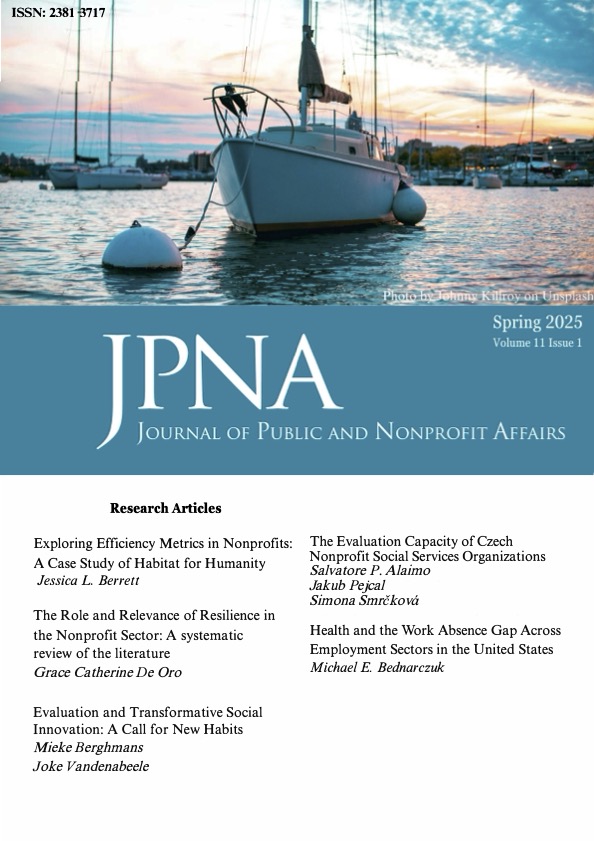Evaluation and Transformative Social Innovation: A Call for New Habits
DOI:
https://doi.org/10.20899/jpna.w8sydp51Keywords:
transformation, social innovation, pragmatism, monitoring and evaluationAbstract
In this article we argue that dominant measurement and evaluation methods reduce the transformative potential of social innovation initiatives. Taking a pragmatist perspective on transformative social innovation and drawing on a commonly used distinction between simple, complicated and complex intervention logics, we demonstrate that habitually used monitoring and evaluation methods are often supported by a simple or complicated intervention logic. These intervention logics and related understandings of social change and knowledge production are incompatible with the ambition to realise transformation. Less dominant methods, which often are supported by a complex intervention logic, seem to be more apt, especially when they do not focus on adaptation alone, for the monitoring and evaluation of transformative social innovation initiatives. On the basis of this analysis, we plead for new habits of monitoring and evaluation and formulate an agenda for further action and research.
Downloads
Published
Issue
Section
License
Authors who publish with this journal agree to the following terms:
- Authors retain copyright and grant the journal right of first publication with the work simultaneously licensed under a Creative Commons Attribution License that allows others to share the work with an acknowledgment of the work's authorship and initial publication in this journal.
- Authors are able to enter into separate, additional, contractual arrangements for the non-exclusive distribution of the journal's published version of the work (e.g., post it to an institutional repository or publish it in a book), with an acknowledgment of its initial publication in this journal.
- Authors are permitted and encouraged to post their work online (e.g., in institutional repositories or on their website) prior to and during the submission process, as it can lead to productive exchanges, as well as earlier and greater citation of published work (see, The Effect of Open Access).







